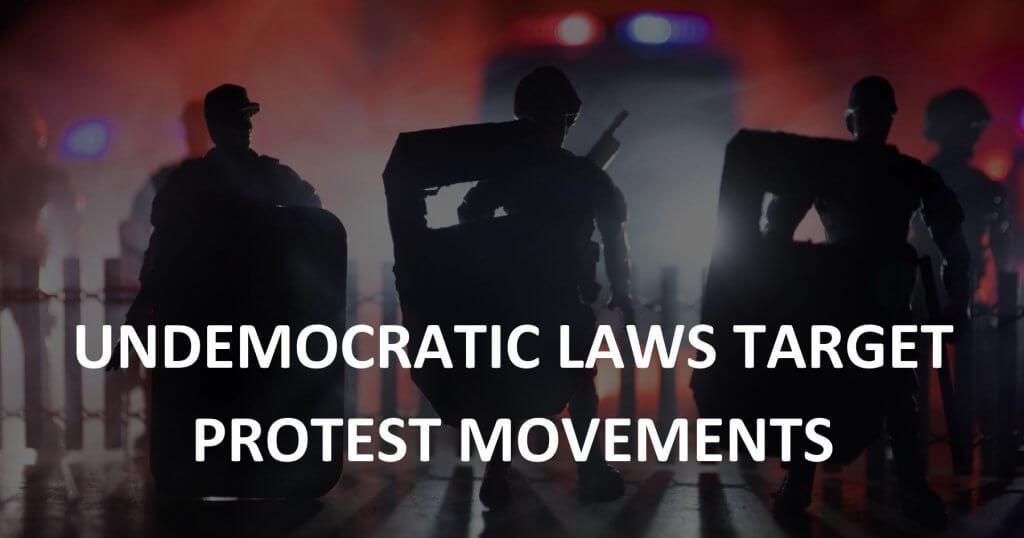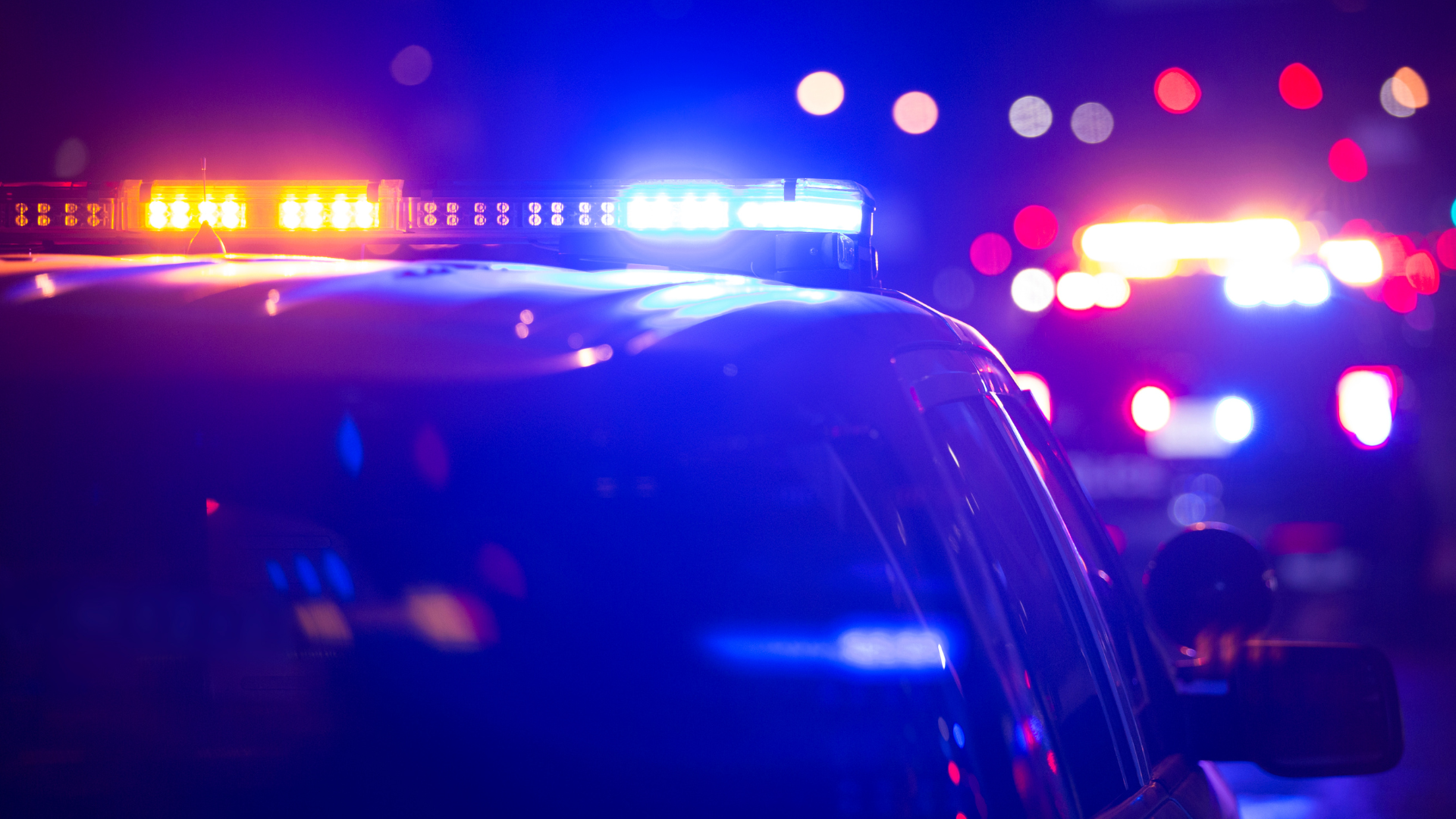NSW Police crackdown on the right to protest is unfair and violating. Recent protests organised by Blockade Australia expose the disproportionate policing tactics used on climate change activists.
Solicitor Patrick Latham said the tactics used by NSW Police are “unprecedented.”
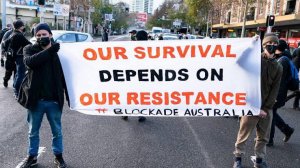
Who is Blockade Australia?
According to Blockade Australia they are “an organising network established in response to Australia’s ongoing efforts to block action on the climate and ecological crisis.”
Seemingly emerging last year, Blockade Australia made headlines after a series of climate protests in Newcastle last September. They followed up with more at Port Botany in March this year.
The protests ranged from abseilers hanging from Railway or Port infrastructure to traditional protest marches along public roads.
Protesters filmed their activities which they streamed within Australia and overseas, raising awareness of the issue of climate change.
None of the protest activity involved any violence.
Blockade Australia made no secret that they planned further protests for Sydney from 28 June to 3 July 2022. They advertised this on their Internet sites. The orgnisation strives “to build a climate resistance powerful enough to confront Australia’s destructive operations as a whole.”
Since then, the State increased its pressure on Blockade Australia.
Initial response from NSW parliament
New legislation came into force in April, despite calls from a coalition of almost 40 civil society organisations to scrap the bill.
The new changes include the extension of section 144G of the Roads Act 1993. This means that protesters will now potentially face up to two years in prison and fines of up to $22,000.
The NSW Police Force also re-established Strike Force Guard to “prevent, investigate, and disrupt illegal protests” throughout the state.
New South Wales Attorney-General Mark Speakman believes that harsher penalties will deter protesters. He stated that “the old laws, at $400 a pop, were no deterrent.” However, this legislation includes a protection against those who protest for “industrial action, an industrial dispute or an industrial campaign.”
Greens MP Jenny Leong told Nine News that deciding who can and cannot protest is “hugely problematic.”
An attack on protesters rights?
Sophie McNeill, a researcher at Humans Rights Watch, says the new laws are targeting protesters who are, “disproportionately subject to vindictive legal action and excessive police attention”.
Those who protested last Monday may face newly established punishments of two years in prison and fines of up to $22,000. This is notably more than the driver who deliberately drove into the protesters the same day only. The driver received a fine of $469 fine and 3 demerit points.
The NSW Police have also been found to use potentially unlawful tactics such as secretly monitoring protestors.
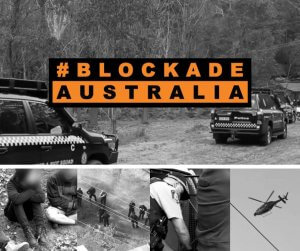
Last month, Blockade Australia members who were on a property in Colo, north-west of Sydney were monitored by the police in camouflage gear with guns. Officers responded by sending in “PolAir, the Dog Unit, the Public Order and Riot Squad, Police Rescue, Raptor Squad and Operations Support Group.”
Indigenous woman charged
Patrick Latham, Solicitor at O’Brien Criminal & Civil Solicitors, represents an Aboriginal “Aunt” who was present at the Cole property on the Sunday. The Police arrested her 4 days later and charged her with offences of obstructing and intimidating police in the execution of their duty.
Witnesses present claim that the police officers were not in police uniform and did not identify themselves as being police officers. In fact two of the officers were in camouflaged “gilly suits” and may have been unlawfully trespassing.
“The tactics used by NSW Police are concerning, and show a planned, targeted and pre-emptive attack on protestors who merely intended to exercise their democratic rights to protest” Latham said.
“In these days, where gangland shootings are reported almost daily, it seems beyond belief that NSW Police can allocate so much time and resources to try and prevent peaceful protests, rather than investigating and prosecuting violent criminals”.
Alice Drury, Legal Director of the Human Rights Law Centre, stated that protests should be protected fairly.
“Sending in 100 armed police officers to threaten and intimidate people planning a peaceful protest is alarming and disproportionate,” Drury stated.
Harsh bail conditions for Blockade Australia participants
Just last week, Police arrested more than 20 people for causing disruptions on Sydney’s roads. Many of these protesters were in custody for long periods before going before a Court and getting a release on bail.
Mali Cooper was one of the climate protesters who chained herself to her steering wheel, causing a standstill at the entrance of the Harbour Tunnel.
Her lawyer Mark Davis said her bail conditions include, “reporting to police three times a week, restrictions from entering Sydney’s CBD, and prevention from contacting co-accused would be enough to cause her to “re-think activities of protest.”
However, Cooper has since been re-arrested for allegedly breaching bail conditions. She was arrested again on her way home after the police which her lawyers state was ‘calculated’ by police.
“It appears that many protestors had bail enforcement conditions imposed by Police, despite such conditions only being able to be imposed by a Court” Mr Latham said.
“We were successful in getting these unlawful conditions deleted from our client’s bail”.
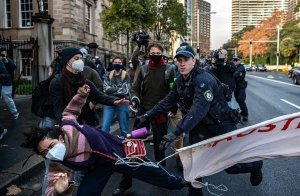
Right to Protest in NSW?
In NSW, individuals’ ability to participate in peaceful protest is protected by the common law right to peaceful assembly and promoted within international human right treaties.
International treaties
As Australia is a party to seven core international human right treaties, Australia has voluntarily accepted legal obligations under international law. The right to freedom of assembly and association is in:
- articles 21 and 22 of the International Covenant on Civil And Political Rights (ICCPR)
- article 8(1)(a) of the International Covenant On Economic, Social And Cultural Rights (ICESCR)
- article 5 of the International Convention on the Elimination of all Forms of Racial Discrimination
- article 15 of the Convention on the Rights of the Child
- article 21 of Convention on the Rights of Persons with Disabilities
Australian Constitution
The right has further protection under the implied freedom of political communication in the Australian Constitution. However, it is somewhat unclear about how many restrictions can regulate that freedom before they become unconstitutional.
NSW statutes
In NSW, the Section 23(1) of the Summary Offences Act 1988 (NSW) provides a list of when a public assembly is authorised. To have legal protections for a public assembly under this section, an individual must fill out a ‘Notice Of Intention To Hold A Public Assembly’ and submit it to the NSW Commissioner of Police for approval. If a public assembly is denied, “the organiser may apply to a Magistrates Court for an order authorising the holding of the assembly.”
In accordance with Section 545C of the Crimes Act 1900 (NSW), there are penalties for those who knowingly join or continue to participate in an unlawful assembly.
We identified a number of issues in relation to some of the arrests, as well as in relation to the conduct of NSW police not just in respect of protestors but also their friends, family and supporters many of whom experienced unlawful stops and searches.
If you believe that you experienced unlawful arrest and want to seek legal advice give us a call on (02) 9261 4281.

Nicole Byrne
Content Creator | Media Coordinator
O'Brien Criminal & Civil Solicitors
www.obriensolicitors.com.au


